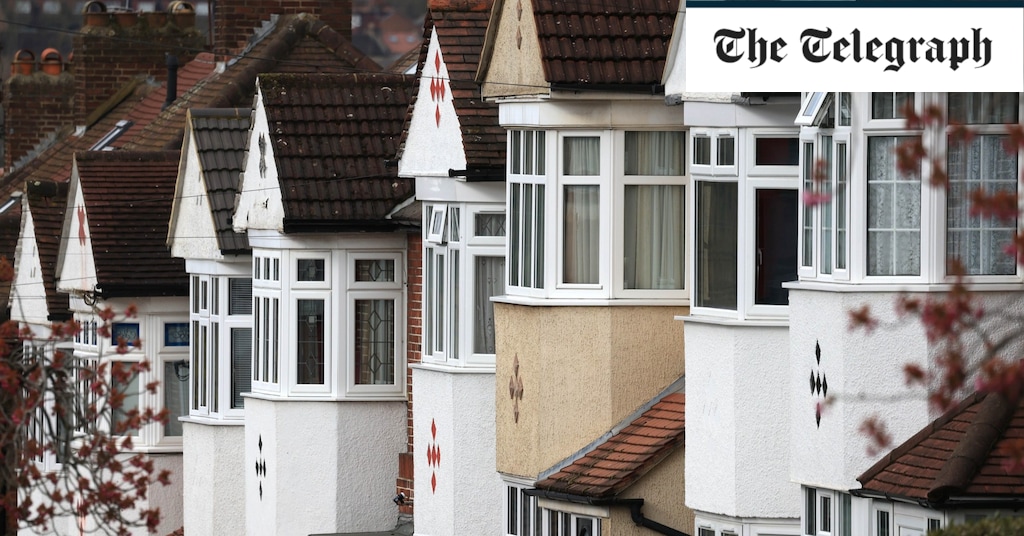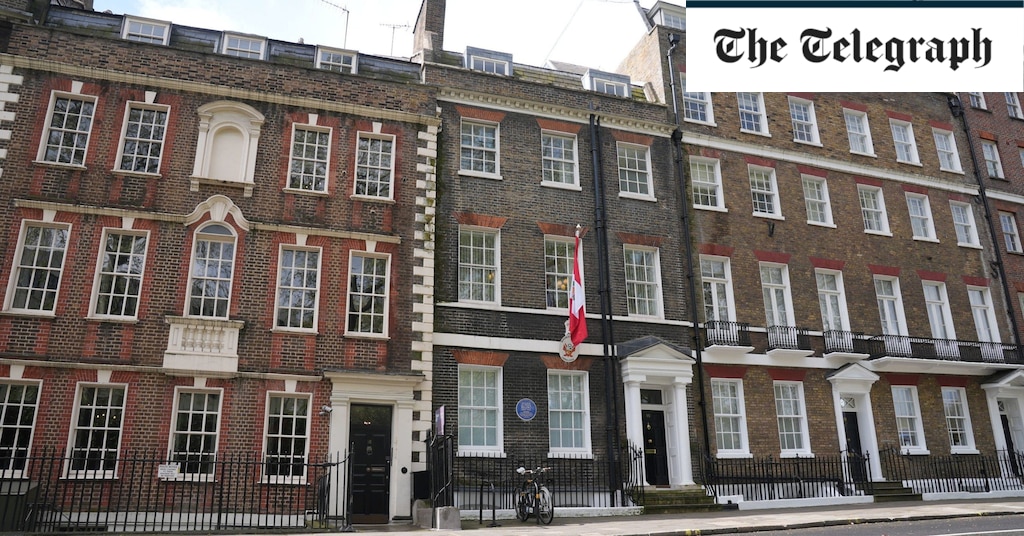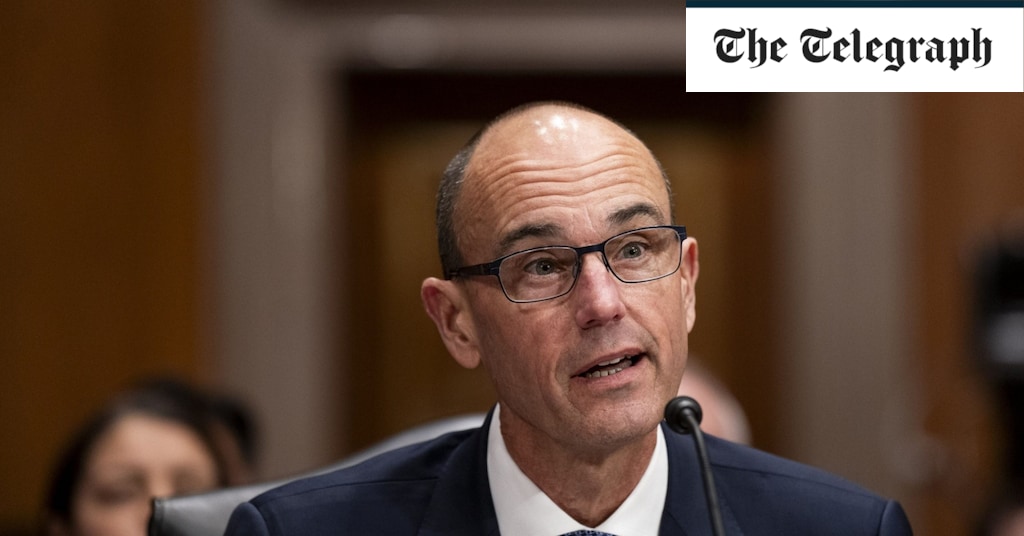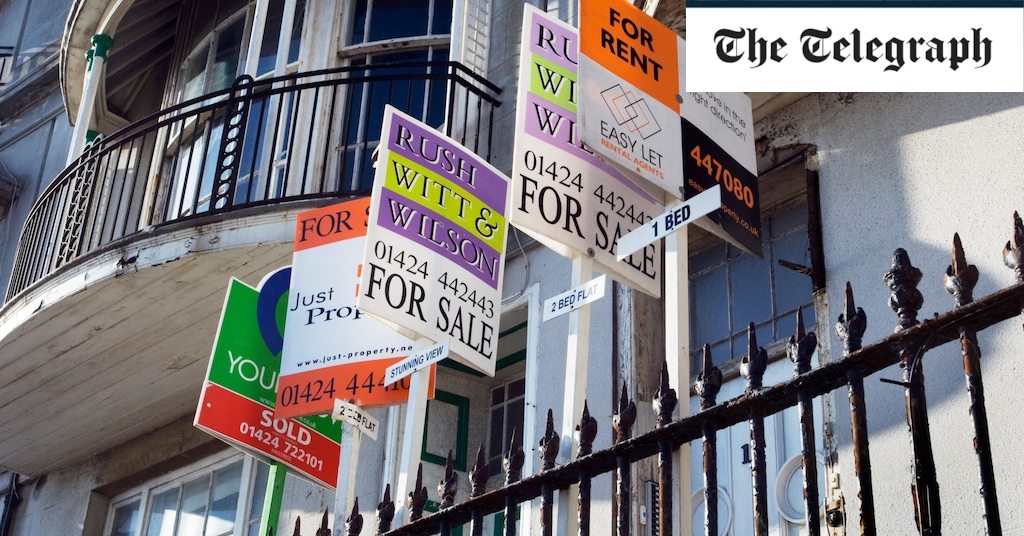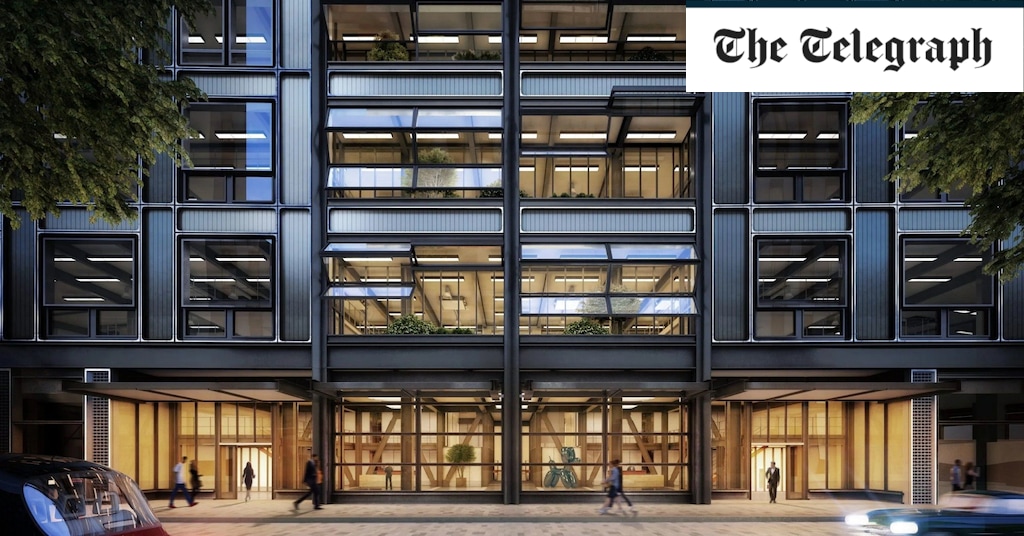Angela Rayner purchased a four-bedroom property after she and her husband made almost £200,000 selling their former council houses.
The couple appear to have made around £182,500 after selling two homes they owned in the Stockport area of Greater Manchester in the mid 2010s.
Ms Rayner is facing scrutiny over whether she or Mark Rayner, her husband at the time, paid the right amount of capital gains tax when the two properties were sold.
Despite the couple both selling their homes, Ms Rayner was the sole owner of their new four-bedroom house, bought in 2016.
Ms Rayner sold her council house on Vicarage Road for a gain of £48,500 in March 2015 while Mr Rayner made £134,000, when he sold his in April 2016.
That same month, almost a year after Ms Rayner was elected MP, she purchased a £375,000 property in her new constituency of Ashton-under-Lyne.
The four-bedroom red brick house has three reception rooms, a large secluded garden and two detached garages, according to the Rightmove listing from the time.
The deputy Labour leader sold her house in Vicarage Road for £127,500 in 2015 and, according to official Land Registry documents, bought the property in Ashton-under-Lyme.
On the same day Ms Rayner bought the house, her husband sold his Lowndes Lane home for £145,250, according to Rightmove.
However, despite Mr Rayner being listed on the electoral roll for the property from 2017 along with Ms Rayner and her son Ryan Batty, she is the only proprietor named on official documents. The couple are understood to have separated in 2020.
In 2022, Mr Rayner applied for home rights under the Family Law Act, which prevents one person from being able to sell a house and leave the other homeless.
Greater Manchester Police is investigating whether any offences were committed, and is understood to have spoken to neighbours about Ms Rayner’s living arrangements.
Ms Rayner has repeatedly insisted she has done nothing wrong, but has declined to publish details of her tax affairs. She has said she will “do the right thing and step down” if she is found to have committed a criminal offence.
The Labour Party and Greater Manchester Police have been contacted for comment.
Jeremy Leaf, north London estate agent and a former chairman of the Royal Institution of Chartered Surveyors, said the housing market is still “playing catch-up” as the increase in new enquiries emboldens sellers to not only make their properties available, but chance their arm at higher asking figures.
He added: “The prospect of more stable or even falling mortgage rates is certainly helping to improve confidence generally.
“However, the uplift in supply has meant more choice, so the market remains price sensitive and buyers are negotiating hard – particularly those who require little or no finance.”
Rates peaked in July 2023, reaching 6.86pc, but have since fallen. The average two-year fix sits at around 5.83pc, while the average five-year fix is more like 5.40pc according to data firm Moneyfacts.
But in more recent times, mortgages have begun to edge up again as higher-than-expected inflation figures cast doubt over the likelihood the Bank of England will cut interest rates before the summer.
Tom Bill, head of UK residential research at Knight Frank, said changing economic predictions mean buyers and sellers “have faced mixed messages” this year, which may mean asking prices aren’t achieved.
He said: “While rising asking prices show seller expectations have improved, there is broader downwards pressure on prices as mortgage rates edge higher, supply increases and a wave of people roll off sub-2pc fixed-rate mortgages agreed in early 2022.
“The result is more friction around prices, particularly when a rate cut seems to move further into the distance with every release of economic data. That said, higher supply means there should be a recognisable spring bounce in the housing market.”
Nick Mendes, of mortgage brokerage John Charcol, said he had noticed a “slow down” of activity in recent weeks as mortgage rates stagnate and some buyers wait eagerly for a Bank Rate reduction.
He added: “We did see a lot of people entering the market earlier on in the year to beat the summer rush. Some house prices were reflecting the highs we saw just a few years ago.
“Some people will have stretched themselves, now unable to renew their rate in the current market and trying to downsize without losing on their property value.
“Always take asking prices with a pinch of salt; look at Land Registry prices for what [properties] were actually sold for.”
The US business employs about 45,000 people in 65 countries, a workforce which has ballooned 60pc from 28,000 people in 2018.
Recent efforts to trim its headcount include a voluntary notice period scheme targeting consultants across McKinsey’s UK and US offices.
Under the terms of the scheme, UK employees can spend nine months looking for new jobs while receiving full pay.
It follows sweeping job losses under one of the largest restructurings in McKinsey’s 98-year history, dubbed Project Magnolia.
The overhaul announced last year eliminated 1,400 jobs in back-office and support functions, including human resources, communications and IT.
The layoffs reportedly attracted criticism from among the company’s 750 senior partners who accused Bob Sternfels, global managing partner of the firm, of mishandling the process.
McKinsey, which recorded $16bn (£13bn) of revenue last year, is often called on by companies and governments needing help cracking their toughest problems.
However, the business has since warned 3,000 consultants that their performance is unsatisfactory and needs to improve.
Underperforming employees typically have three months to improve before being counselled to leave the business altogether.
The slowdown has also forced McKinsey to cut the number of new people promoted to its partnership and to defer partner bonuses.
After five weeks of working 20-hour days, one McKinsey consultant decided enough was enough.
He was overworked thanks to managers overpromising to clients in an effort to keep them happy during the downturn, meaning projects were under-resourced and delivered on the cheap – if for any fees at all.
Months after quitting in search of greener pastures, the former McKinsey analyst now wishes he’d hung on for just a little longer.
Hundreds of senior employees at the consulting giant’s UK offices have been offered the chance to step back from client projects and spend nine months searching for new jobs – all while being paid in full.
McKinsey departees will get access to career coaching and administrative support during this time, such as help with updating their CV. If they still haven’t found a new employer after nine months, they’re on their own, The Sunday Times first reported.
It’s in stark contrast to McKinsey’s well-established practice of pushing out underperforming employees in client-facing roles after being “counselled to leave”.
The exit route may appeal to the large swathes of consultants who have been languishing on what McKinsey insiders call “the beach”, where days are spent working on internal business development rather than billable client work.
Although initially giving employees the chance to relax from their usual 80-hour weeks, these metaphorical holidays can see consultants go for months without gaining any real experience.
“A lot of people were promised they would get development that they wanted and ended up on the beach,” says the former McKinsey analyst.
There’s a certain irony given McKinsey’s reputation as corporate merchants of death hired by companies to help slash headcounts and cut costs.
However, the scheme ultimately raises questions about whether the doyen of the consulting world has simply become too big.
McKinsey, which recorded $16bn (£13bn) of revenue last year, has long been the go-to fixer for companies and governments needing help cracking their toughest problems.
The mystique surrounding the enigmatic business has helped justify the firm’s premium fees, which are much higher than those charged by consultants in the Big Four.
“It’s like buying a suit from Next off the rack or going to Savile Row,” says James O’Dowd, founder and managing partner of professional services recruiter Patrick Morgan.
After years of rapid expansion amid fierce competition from rivals Bain and BCG, McKinsey now finds itself with an enormous workforce of 45,000 employees in 65 countries, up 60pc from the 28,000 people in 2018.
A British former executive at consulting giant Accenture has claimed he was “belittled and shamed” by colleagues because of mental health issues including depression.
Peter Lacy, who was formerly chief responsibility officer at the multinational, has filed an employment tribunal claim against the company as well as its US-based chief executive Julie Sweet, claiming he was “frozen out of meetings” and mistreated before losing his job in an “ambushing”.
Mr Lacy suffered from attention deficit hyperactivity disorder (ADHD), post-traumatic stress and depression. He has accused Accenture, which had revenues of $64bn (£51bn) last year, of unfairly targeting him because of his conditions.
Accenture has denied all of the allegations and is contesting the case at trial.
Mr Lacy was one of the accounting giant’s top fee-earners before he was dismissed last year. His lawyers claim that he considered his ADHD a “superpower” that was “integral to his success and that of Accenture as his employer who reaped the benefits”.
However, in the 18 months before his dismissal, his symptoms were exacerbated and he needed extra help. Rather than be granted such support, Mr Lacy alleges that he faced “adverse treatment” and was belittled “sometimes publicly” by staff, including Ms Sweet.
Mr Lacy is claiming unfair dismissal and disability discrimination, according to legal documents made public on Thursday.
The documents claim: “Rather than provide [Mr Lacy] with the support he required during this time and live up to [Accenture’s] rhetoric around health, wellbeing and catering for the needs of their neurodiverse workforce, [Mr Lacy] was frozen out of meetings, belittled (sometimes publicly) by senior staff such as Ms Sweet and Ms [Ellyn] Shook [Accenture’s HR chief], and shamed.”
This allegedly culminated in an “ambushing” where Mr Lacy was dismissed.
“This decision was a fait accompli with no form of redundancy exercise at all.”
The NHS in Scotland is spending more than a million pounds a year to employ two locum consultants, an employment tribunal has heard.
The bill of almost £1.2 million is for a pair of senior psychiatrists to cover the Western Isles and is an increase of £100,000 on the previous year, according to figures presented to the hearing.
The Isle of Lewis-based health board told the tribunal it struggles to fill the positions with permanent doctors and that overspending on temporary staff – who are looking to “maximise” their earnings – has an impact on other patients’ care.
An individual locum can cost the health service £600,000 a year compared with £200,000 for a doctor who takes on a permanent role, the hearing was told.
The financial disclosures were made during a case involving consultant psychiatrist Denitza Mihaylova, who was sacked after she fell ill and was unable to fulfil her on-call commitments at night.
Over almost two years, the NHS paid locums to cover her while she was off sick, but sacked her after concluding that funding this arrangement was “no longer viable”.
Health board sued
Ms Mihaylova sued the health board for disability discrimination and unfair dismissal, but her case was rejected after the tribunal found the health board had to manage its budget responsibly.
The hearing in Stornoway was told that Ms Mihaylova started work for the Western Isles NHS in September 2020 as one of two specialists providing 24/7 psychiatric services.
This involved an on-call rota and regular visits to Uist and Barra as well as home visits to patients in crisis on Harris and Lewis.
“The second full-time permanent consultant psychiatrist had retired in 2018,” the tribunal was told. “[The health board] had been unable to recruit a full-time replacement.
“Between 2021 and 2023 the vacant post for a consultant psychiatrist was advertised eight times with no applicants. Accordingly, that post was filled from 2018 with locums.
“Consultant psychiatrists are in short supply in Scotland, there being a 60 per cent vacancy rate at this time. General psychiatry is the specialism with the most vacancies across Scotland.
“It is therefore difficult to recruit consultant psychiatrists particularly for remote, island-based locations. This means that the board must rely on locums.”
Difficulties finding doctors
The tribunal heard that although there are agreements with some agencies to supply locums at a capped cost, because of the difficulties in finding doctors, health boards have to go “off framework” and recruit using other agencies at higher costs.
The tribunal was told that in September 2021 Ms Mihaylova was diagnosed with the spinal condition myelopathy, leading her to be off sick for 150 days over the next 22 months.
To cover her absence, the health board had to pay for an additional locum consultant, the hearing was told.
In March 2022, Ms Mihaylova began a phased return to work following surgery and by August she had returned to full-time duties.
However, she raised concerns about responding to night time calls as the pain medication she had to take – which the tribunal heard she may have to be on permanently – made her “sedated”.
An occupational health adviser recommended she not do overnight on calls, the hearing was told.
No longer viable
In September Ms Mihaylova was told by bosses that funding long-term locum cover for her on-call duties – at a cost of £325,000 – was no longer viable.
She was also told the health board anticipated running a £1.6m budget deficit – with locum costs a “considerable part of that” – despite Scottish Government rules forbidding this.
In addition, bosses said that “the adjustment to cover on-call could not continue for financial reasons without a known time frame when she could safely resume on-call”.
In January 2023 the figure for the cost of the second locum consultant to cover her absence had increased to £366,000 a year, the hearing was told.
In March, Ms Mihaylova – who by that time was on sick leave – was sacked because of her absences from work and the health board being unable to say with certainty that she could ever return to work full time.
As part of the evidence presented to the tribunal, the health board produced figures which showed that the total budget for mental health services for 2022-23 was £2,843,881 and from that for psychiatry the budget was £520,986.
Budget increases
However, locum costs for 2022-23 were actually £1,073,308 for two doctors, including the second locum to cover for Ms Mihaylova.
The tribunal was told that the budget for mental health services for 2023-24 had increased to £4,314,314, with a psychiatry budget of £611,775.
The projected cost of employing two locum consultant psychiatrists employed since her dismissal was put at £1,179,076.
“Overspend in mental health services has consequences for service provision and the financial impact on other aspects of the service, because it requires efficiency savings elsewhere in the organisation,” the tribunal was told.
“The requirement to secure locums, and changing locums, creates significant disruption with direct impact on both inpatient and community care, specifically in terms of continuity of care, functioning of local multidisciplinary team arrangements and decision making in relation to complex patient presentation.”
Despite sympathising with Ms Mihaylova, the tribunal rejected her claims.
‘Extremely unfortunate’
“The circumstances of this case are extremely unfortunate,” said Muriel Robison, an employment judge who chaired the tribunal.
“The [health board] has difficulty recruiting consultant psychiatrists and having recruited [Ms Mihaylova], who clearly enjoyed her job and living on the island, she became ill such that she could not perform all of her duties.
“It must be a matter of great regret to both parties that the arrangement could not continue. For those reasons, this was a difficult case, but ultimately we accepted that the adjustments made could not continue without an end in sight given the respondent’s budgetary responsibilities.”


